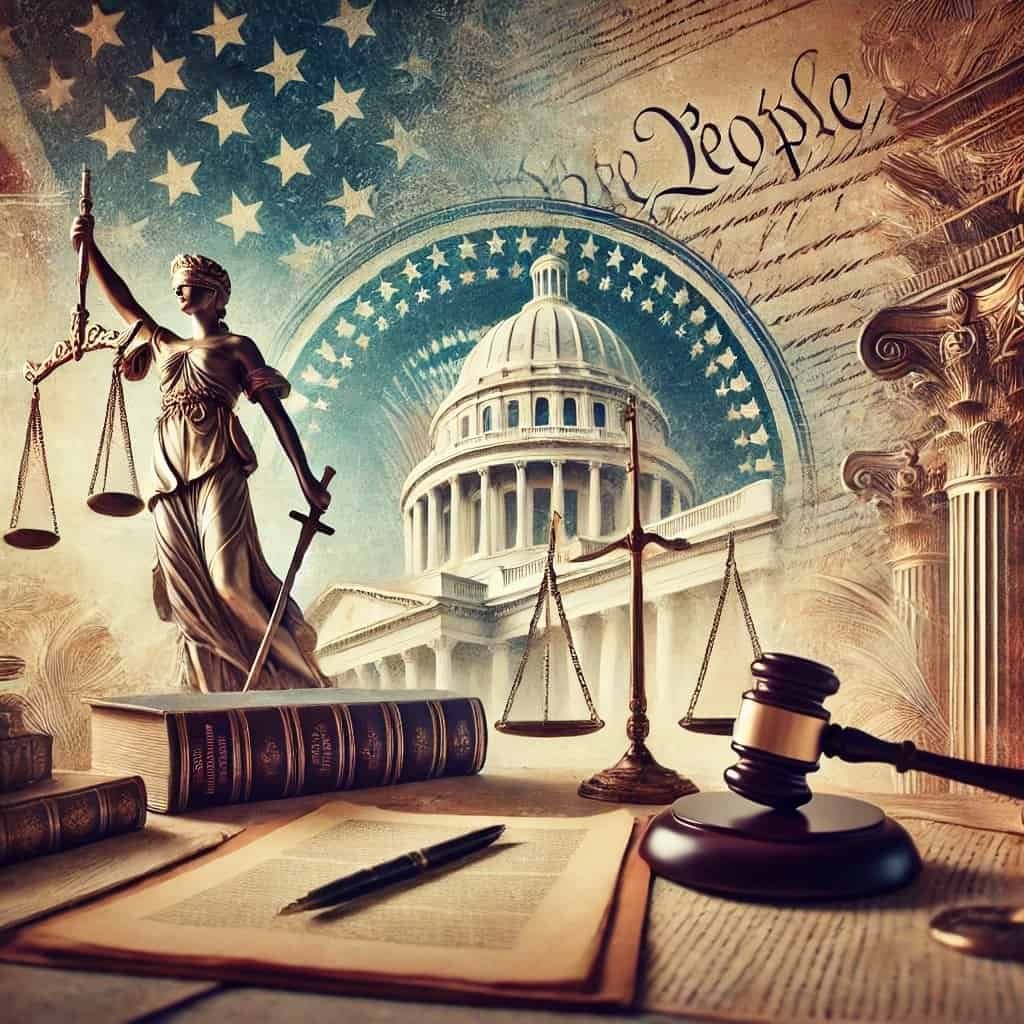The Founding Fathers granted the President of the United States a remarkable power: the ability to pardon. Rooted in the U.S. Constitution, this provision ensures that the executive branch has a mechanism for addressing unusual circumstances where justice or mercy must prevail. Yet, as we journey through the history of presidential pardoning, the exercise of this authority has often been steeped in controversy, especially when personal relationships come into play. Let us explore this topic and reflect on how conservative principles provide a framework that avoids undermining public trust.
Now fast forward to December 2024. The Biden-Harris Administration gave us plenty to talk about when President Joe Biden issued an unconditional pardon for his son, Hunter Biden, who had been convicted of tax and firearm-related offenses. The President argued that it was a necessary act of fairness toward his family member, portraying Hunter as the victim of politically driven prosecution. While this might strike some as a father’s compassionate act, we can’t ignore the message it sends about justice, equity, and the boundaries of executive power. Critics of the Biden-Harris Administration pointed out the dangers of such decisions undermining faith in the legal system and setting precedents for future misuse.
Historical Precedents of Presidential Pardons
History shows that pardoning family members is rare, but not unprecedented. A similar instance occurred at the close of President Bill Clinton’s tenure when he controversially pardoned his half-brother, Roger Clinton, for long-past drug charges. It was perceived by many as an abuse of power, showing how public trust erodes when leaders appear to prioritize personal ties over principled justice. Importantly, these instances invite us to consider the conservative belief in maintaining accountability and fairness above all else. Such principles are not merely talking points—they are safeguards that keep our republic running smoothly.
President Ulysses S. Grant
Spoke on behalf of his embattled personal secretary during the “Whiskey Ring” scandal
President Andrew Johnson
Showed leniency toward Confederates post-Civil War, allowing Southern elite back into power
President Bill Clinton
Pardoned his half-brother, Roger Clinton, for drug charges
President Joe Biden
Issued unconditional pardon for his son, Hunter Biden
Our past offers valuable examples of how personal relationships have intersected with presidential clemency without direct pardons. President Ulysses S. Grant, known for his loyalty, stirred public criticism when he spoke on behalf of his embattled personal secretary during the infamous “Whiskey Ring” scandal. President Andrew Johnson’s leniency toward Confederates post-Civil War drew ire, as many believed it allowed the South’s elite back into power too quickly. These moments show the enduring impact of a president balancing justice and personal relationships. But here’s the rub—conservative values teach us that transparency and a larger accountability to the nation must remain paramount.
The Conservative Approach to Leadership and Law
Contrast these historical lessons with modern conservative approaches toward leadership and law. Conservatives believe justice must be impartial, devoid of favoritism. Executive powers like the pardon ought to be exercised judiciously, reflecting not just grace but respect for the legal system and the citizens it serves. A conservatively aligned leader would recognize that playing favorites—even within the family—is a disservice to our constitutional ideals.
| Conservative Principles | Application to Presidential Pardons |
|---|---|
| Impartial Justice | Pardons should not be influenced by personal relationships. |
| Limited Government | Judicious use of executive powers, including pardons. |
| Accountability | Transparency in the reasoning behind pardons. |
| Rule of Law | Upholding the integrity of the legal system. |
| Individual Responsibility | Pardons should not undermine personal accountability. |
Let’s weave in some contemporary philosophy while addressing these issues. Conservative economic values focus on creating opportunities rather than fostering governmental dependence. In much the same vein, the act of granting a pardon should uplift the integrity of the system rather than suggesting that powerful connections can bend the rules. Government is most successful when it works diligently to enable independence, prosperity, and fairness—not when it manipulates processes for personal gain.
Implications for Public Trust and Stability
Consider the larger implications for public stability. The erosion of trust in leadership doesn’t just hurt the administration in question; it weakens the people’s faith in the Constitution itself. When conservatives advocate for limited government intervention, it’s not simply about shrinking the state—it’s about keeping institutions strong by ensuring the rules apply to all evenly. That’s a legacy every patriot should strive to protect.
Cultural context matters, too. Early leaders like George Washington epitomized restraint, avoiding even the perception of favoritism. This was not out of fear but respect—a respect for the differences between personal loyalties and public duty. It’s no coincidence that such practices were strongest in eras when the United States was solidifying its democratic foundations, balancing freedom with moral accountability.
The Balancing Act of Forgiveness and Principles
At its core, the pardon power embodies forgiveness. But forgiveness doesn’t erase the standards by which we judge our society. It’s this tug-of-war that makes the conservative framework so essential—it reminds us that compassion doesn’t mean abandoning principles. Leaders must exemplify the values they claim to uphold, always seeking to elevate justice above personal or political expediency.
The Biden-Harris Administration’s actions undeniably stoked this conversation anew, and rightly so. Whenever a leader wields power for familial ties, it invites necessary scrutiny. This is where Republican values shine—they act as a compass, ensuring that freedom and fairness remain interconnected, not bypassed. Accountability to both law and the American people is the bedrock of societal success.
Conclusion: Preserving American Integrity
As conservatives, we stand for a justice system where no one—no matter how powerful—is placed above the law. Mercy is vital, yes, but when applied selectively, it risks undermining the foundation of trust between the government and we, the people. The President’s pardon authority is a solemn responsibility, and maintaining reverence for its purpose is the key to preserving American integrity.
In conclusion, history has made this abundantly clear: whether it’s a scandal, an abuse of power, or merely the perception of unfairness, the legacy of any president will ultimately rest on their adherence to the principles they swore to uphold. Hunter Biden’s pardon may fade into annals of political history, but the importance of preserving the impartiality of justice cannot. America thrives when its leaders embody accountability, paving the path for future generations to trust, prosper, and unite under longstanding conservative ideals.
Table of Contents
- Historical Precedents of Presidential Pardons
- The Conservative Approach to Leadership and Law
- Implications for Public Trust and Stability
- The Balancing Act of Forgiveness and Principles
- Conclusion: Preserving American Integrity






